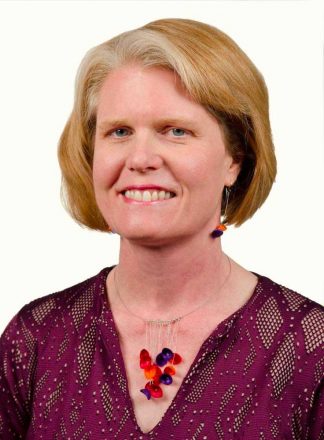By Allison Campbell-Jensen
In the past, Medtronic, a global medical technology company with operational headquarters in Minnesota, sent employee volunteers into communities to give back during a global volunteering drive organized by the Medtronic Foundation each June and July. However, this summer, volunteer opportunities needed to be primarily virtual. Jessica Schmidt, a Medtronic employee based in Minneapolis, found a possible solution in an email from the University of Minnesota Alumni Association — the Mapping Prejudice project.
The U of M Libraries’ Mapping Prejudice project has documented how racial covenants in housing deeds were used to create structural barriers that stopped many people who were not white from buying property and building wealth for most of the last century. In Minneapolis, these restrictions served as powerful obstacles for people seeking safe and affordable housing.
Coalescing toward justice
Beth Price, another Medtronic employee in the Twin Cities, had learned in early 2019 about the covenant issue from her friend and neighbor, Daniel Bergin, who directed the TPT documentary “Jim Crow of the North.”
“I didn’t get involved right away,” Price says, “but with the events this year following the death of George Floyd, I wanted to do more to support racial equity.” Given the heightened awareness of racism, Schmidt also believed Mapping Prejudice would be meaningful for other employee volunteers looking to make a difference.
Schmidt initially planned to involve a team of 10 to 12 Medtronic employees and then an online appeal attracted a few more. After Price reached out to her to join forces and help engage more team members, they coordinated an orientation featuring Bergin and his work. A few weeks later, they learned Mapping Prejudice would be part of Medtronic’s Day of Action for Racial Equity Progress. In partnership with the Medtronic Foundation, they created a broader global orientation, Schmidt says, with a presentation by Kirsten Delegard, Project Director of Mapping Prejudice.
Says Delegard: “Our whole team was humbled by the commitment and knowledge that Medtronic employees brought to Mapping Prejudice. They approached our research project with incredible respect and integrity. It was inspiring to me to see how invested they were in understanding structural racism and illuminating this history of discriminatory housing practices.”
They attracted close to 400 Medtronic employees to this virtual volunteer opportunity that helped set a one-day Mapping Prejudice record of more than 5,200 deed transcriptions through the Zooinverse platform.
Impact and importance
One of those employee volunteers, Riki Banerjee, says, “The importance of the project is to get us to think about historical legally codified overt bias and the long-term present-day impacts that had on communities of color even after this practice was outlawed in the 1960s.” Banerjee adds that the impacts continue in communities, in the racial makeups of neighborhoods, the opportunities enjoyed by some and not others, and the issue of implicit bias.
Schmidt says she was struck by the systemic issues with equality in our communities. “There are structural things that are going to take policy changes,” she says. “Having the knowledge of Mapping Prejudice and the history behind it makes me feel there are actually very tangible things that we can try to move to a more equitable society.”
Using the Mapping Prejudice website, Price checked her Minneapolis home for a race-based covenant. While her home is not impacted, “all around me were covenants.” Using Mapping Prejudice data drove home the point of structural racism, which she now is seeing signs of more clearly in other areas.
“I am proud that Medtronic and the Medtronic Foundation are playing active roles in driving progress toward racial justice,” says Price. “Our leadership has recently increased initiatives significantly, both within our company and by committing to further support external organizations in our communities.”
While wanting to figure out other projects that address structural barriers in education and financial loan programs, Schmidt says of Mapping Prejudice: “I would like to continue to spread the word. There are more people in Medtronic to reach and, in my personal networks, there are people that have no idea that this system exists in our community.”
Donate now to Mapping Prejudice Learn how you can help




